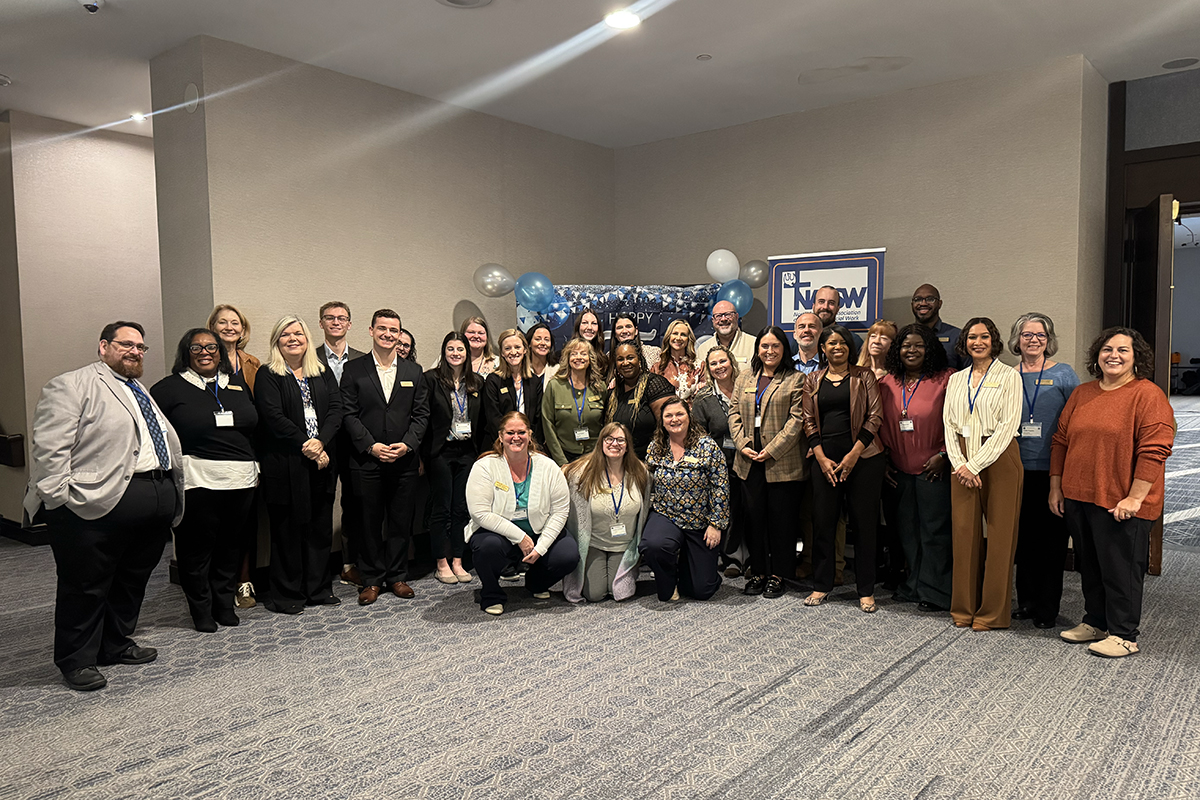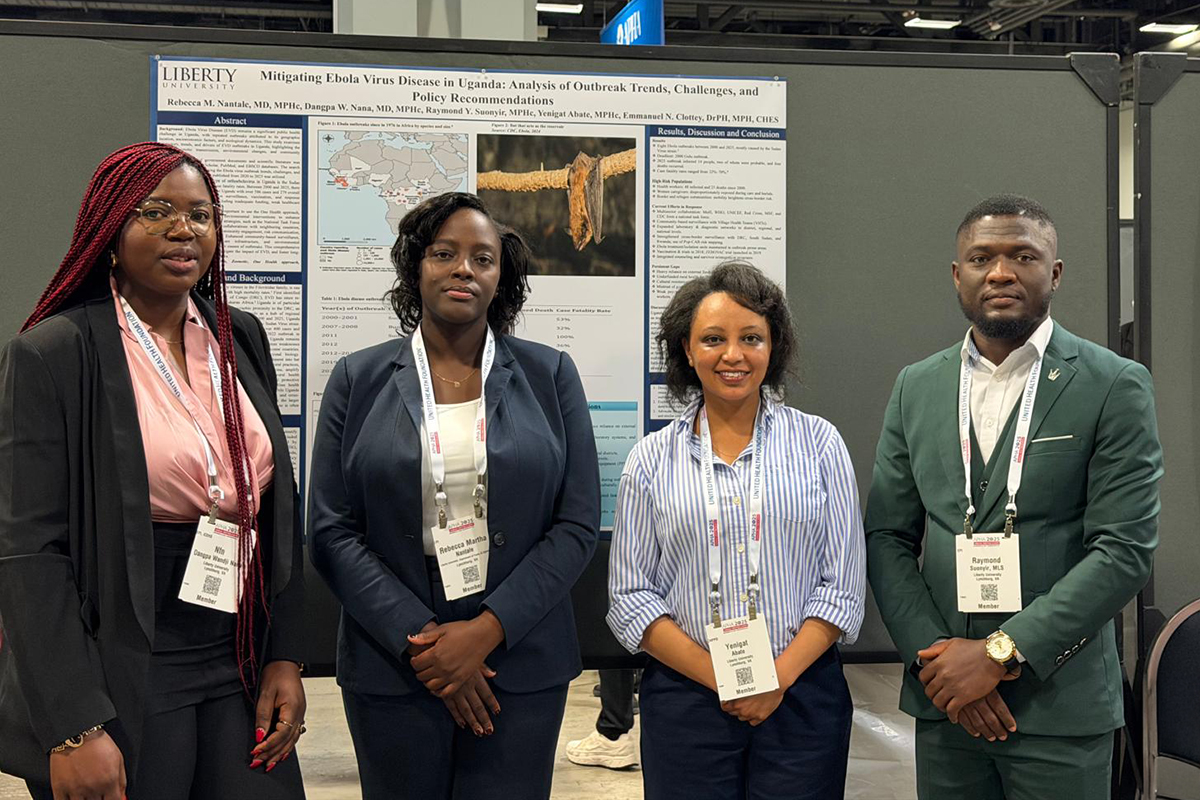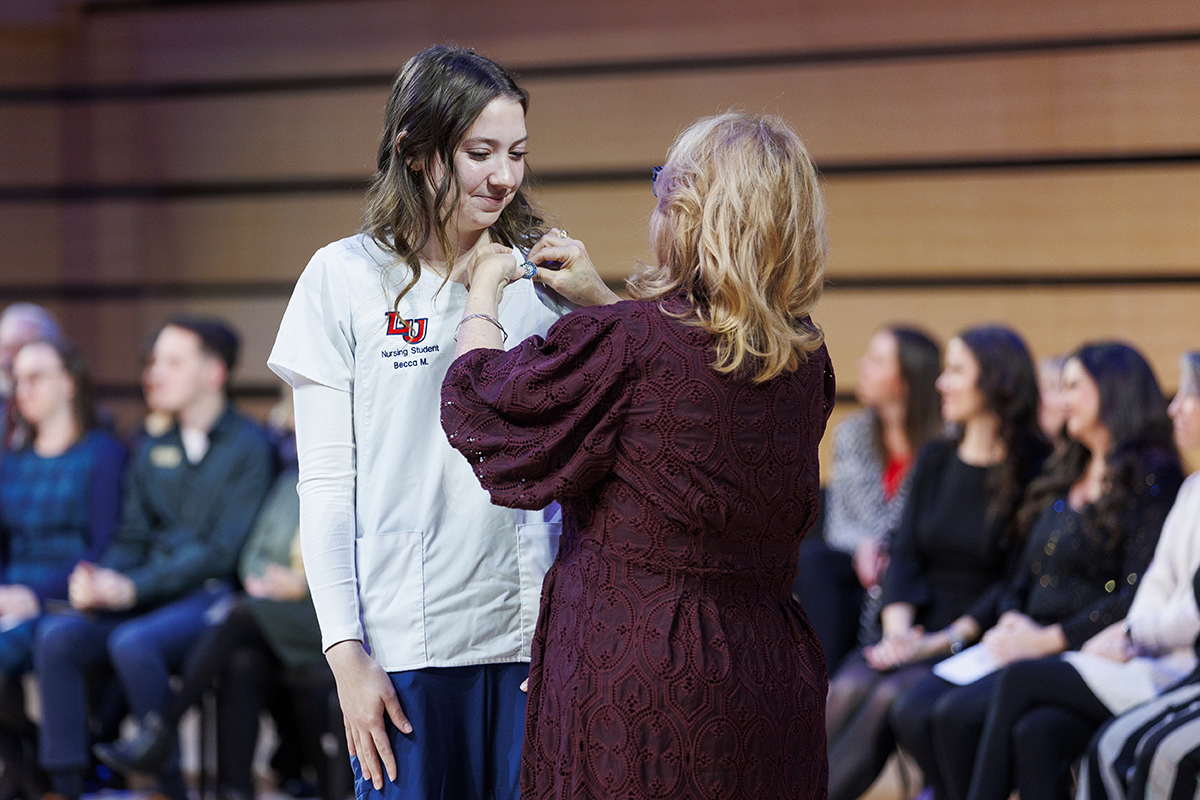Liberty interns conduct research at Johns Hopkins, Uniformed Services medical research laboratories in Maryland
August 10, 2023 : By Ryan Klinker - Office of Communications & Public Engagement
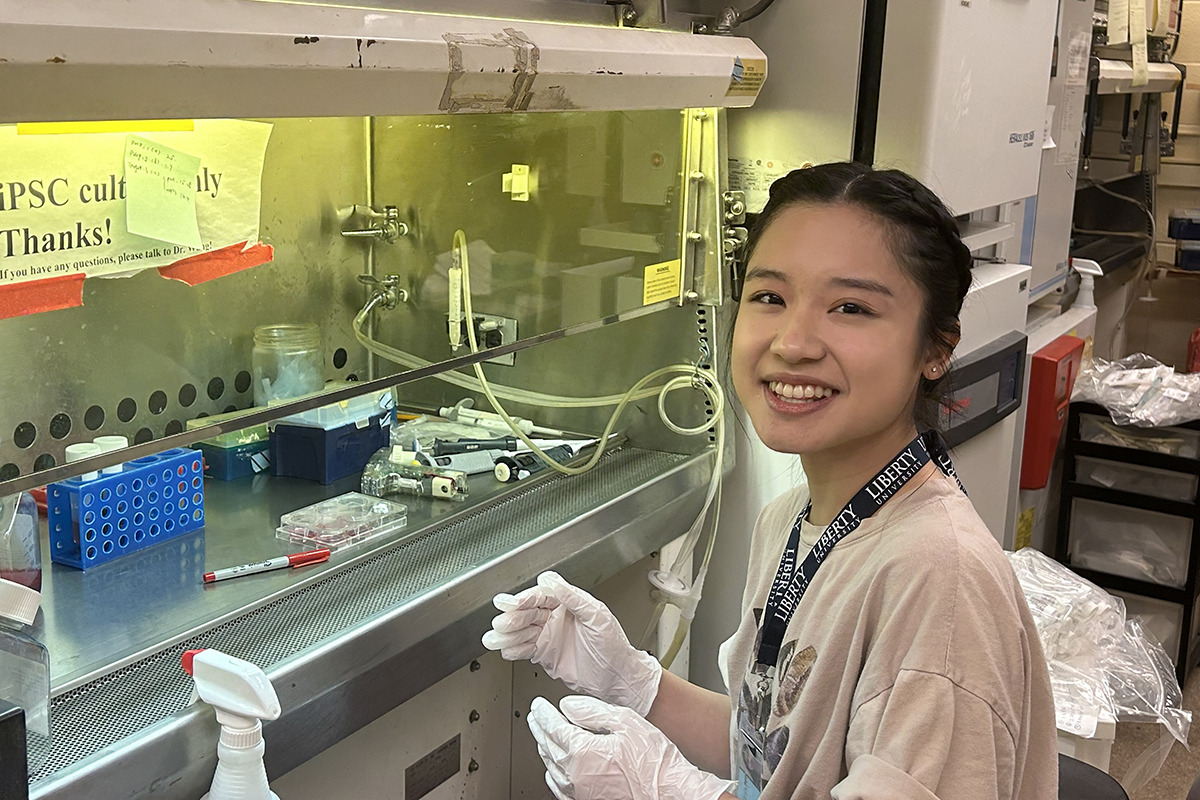
Two rising seniors in the Liberty University School of Health Sciences have spent part of their summer performing active research at two of the country’s top medical research laboratories, Johns Hopkins Bloomberg School of Public Health and the Uniformed Services University School of Medicine.
Felice Kho, who is pursuing a B.S. in Biomedical Science (Pre-Med) at Liberty, has been conducting research at Johns Hopkins on the discovery of novel functions between little-known microproteins thought to be related to neurodegenerative diseases.
“Depending on different environmental stress conditions, these small proteins show either increases or decreases in expression,” she said. “It’s really interesting because currently, across scientific literature, not a lot is known about these microproteins. I’ve done a lot of subculturing, and we’re doing some fluorescent microscopy experiments to see how things interact with each other.”
Kho has been working under the direction of Dr. Jiou Wang, a biochemistry and molecular biology professor at Johns Hopkins who described Kho as having “great intelligence, diligence, and ambition.”
“Despite the brevity of her internship, her rapid mastery of techniques and ability to independently design and execute experiments allowed her to make contributions to the internship project,” Wang said. “Notably, Felice’s positive attitude extended beyond research to effective lab communication, garnering high praise from fellow lab members.”
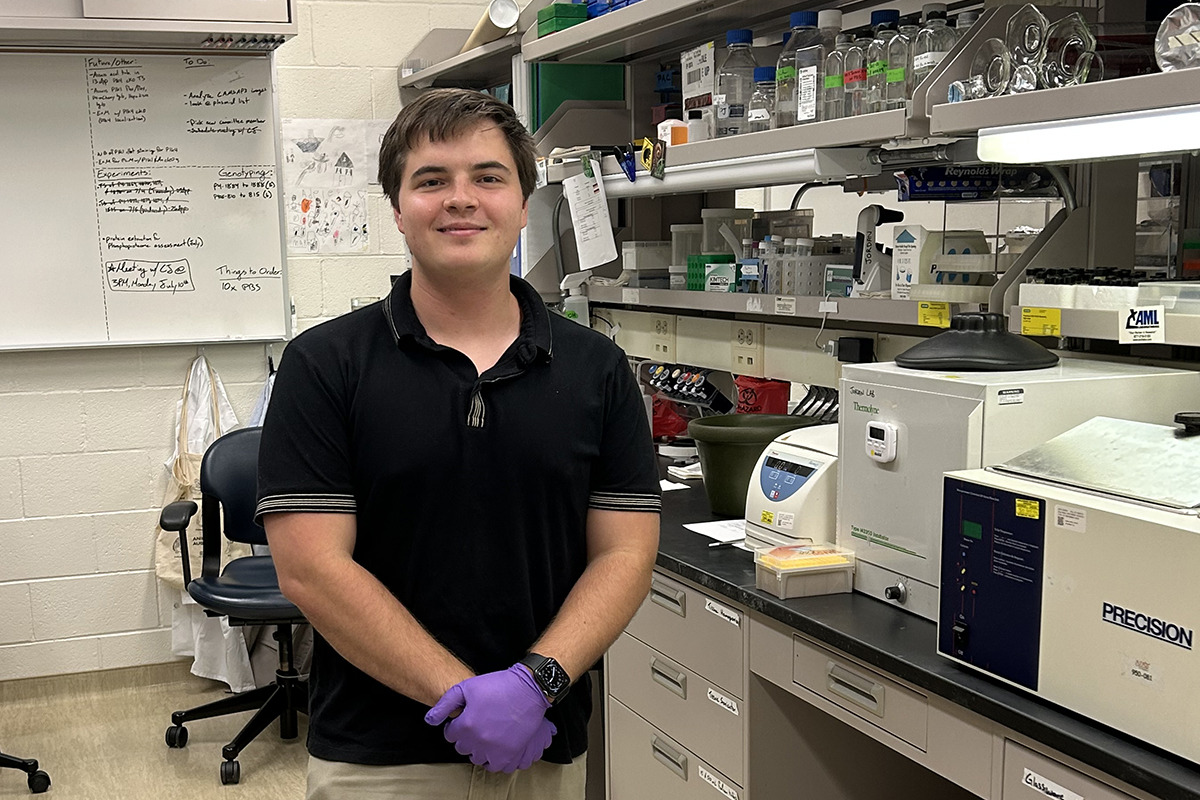
Fellow student Aiden Jeffries has been applying his work in Liberty’s biochemistry program to research at Uniformed Services University under Dr. Philip Jordan, an associate professor of biochemistry and molecular biology. The lab is known for its focus on reproductive development and genetic preservation. Jeffries has been studying two mutations in proteins that help the development of sperm and egg cells.
“My work has been primarily to identify the genetic aspects of mice and determine whether or not these mutations are present in the mice we’re looking at and also to see if there are any unusual developments from the normal cell cycle,” Jeffries said. “It’s been a really special experience to work in a lab full time and learn techniques and skills that I hadn’t learned before.”
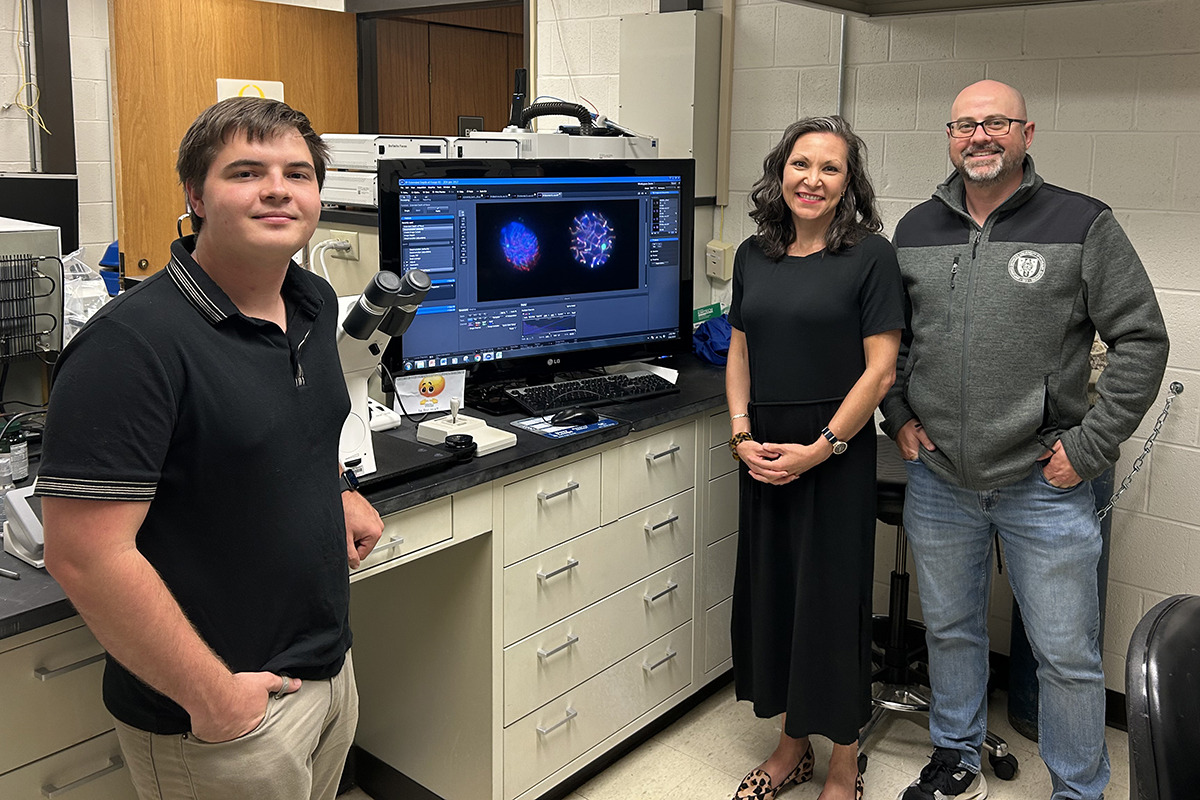
Jordan spoke highly of his intern. “Aiden is inquisitive and driven by the research in our lab,” he said. “He came to our lab with an impressive level of theoretical and practical knowledge of cell and molecular biology. I believe that he has all the potential to do very well in a career in life sciences research. He takes his time to collect his thoughts and ask excellent questions, he has been quick to learn new techniques and works well with other members of our lab.”
The four-week internships were a pilot program developed in part by School of Health Sciences Dean Dr. Heidi DiFrancesca, who previously worked at Johns Hopkins Bloomberg School of Public Health as the Executive Director of Academic Affairs and taught graduate-level courses as an associate scientist and professor. DiFrancesca said she hopes to expand the opportunities in the coming years.
“These internships provide unique, transformative experiences for our research students that enable them to showcase the skills that they have developed through their research experiences with faculty here at Liberty, and to build upon them, enhancing their academic portfolio and professional development,” DiFrancesca said. “The Principle Investigators (PIs) whose labs they worked in over the summer are highly impressed with our students. Their preparation underscores the foundation that was laid by their faculty mentors in the Department of Biology and Chemistry.”
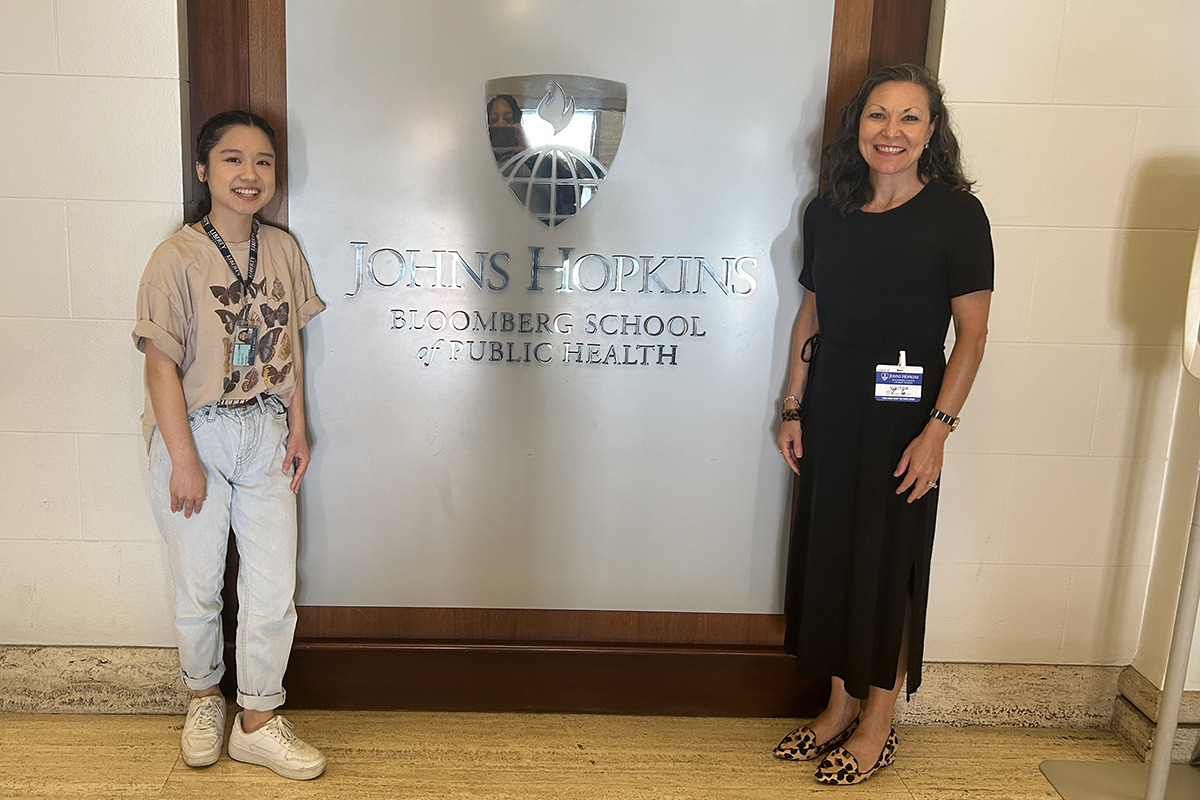
Both students said they were well prepared for the internships because of the research experience they gained under Liberty biology professor Dr. Gary Isaacs.
“Dr. Isaacs’ lab was my first research experience, and I learned a lot — more than I even realized — before I came into this internship,” Jeffries said. “I’m so (thankful) for the type of program that Liberty has that allows students to learn the techniques and also apply them.”
“It’s been nice to see that having done research at Liberty for a year and a half, my work and my skills are being validated,” Kho said. “When I first got involved in research at Liberty, I was not confident and lab work was so stressful to me. I feel more confident now, and I think that the good foundation I formed at Liberty allowed me to come to this internship with more confidence. I’ve been able to practice what I already know but also be very assertive with what I did not know and see it as an opportunity to grow and learn.”
When Kho heard about the internship at the end of the spring semester, she said she initially felt undeserving, but her uncertainties were eased by the welcoming atmosphere in the lab and some keen words of advice from Isaacs.
“I’ve loved research at Liberty, but working in an entirely different place that is as renowned as Johns Hopkins brought on a lot of pressure,” she said. “That pressure went away after my first week because the beauty of science is no matter where you are, as long as you’re working with people who are passionate about what they’re studying, that enthusiasm carries over. Before I left, I mentioned to Dr. Isaacs the anxiety I was feeling, and he told me, ‘You’re not there to be perfect, you’re there to learn.’ Coming in with that mindset was so helpful, and I’ve developed a mindset of curiosity now.”
“We piloted the summer undergraduate internship program this year, and I am looking to expand it in upcoming years as we build partnerships with these institutions and others,” DiFrancesca said. “Because of the impression that our students had on the PIs, this pilot was a success and has opened the door for the expansion of this program.”
